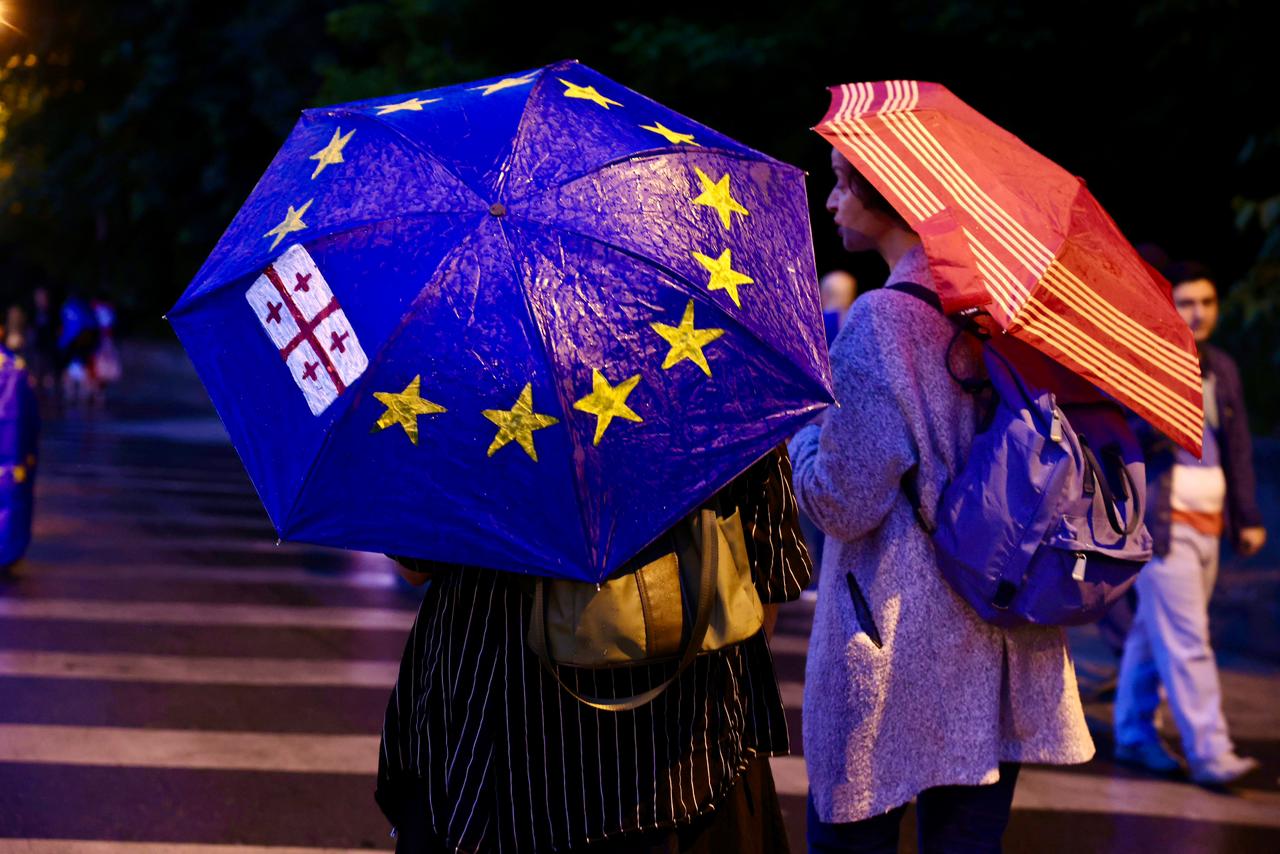On May 22, the Financial Times reported that EU countries, among them Estonia, the Netherlands, Czechia, and Sweden, are pushing for discussion of sanctions against Georgia, including restrictive measures against Georgian Dream representatives who support the Foreign Agents Law at the EU Foreign Ministers’ meeting scheduled for May 27. The move is in response to the GD government’s defiant stance on its highly controversial Russian-inspired “foreign agents” law.
The Financial Times notes that according to EU diplomats briefed by the media, the options for restrictive measures include revoking visa-free travel to the EU for Georgian citizens and targeted sanctions and the freezing of EU funds against Georgian officials. In addition, the Financial Times underlines that European capitals are considering “different measures of pressure on the Georgian government,” according to officials familiar with the matter.
The media outlet also notes that the EU is likely to move more slowly than Washington, the article notes, because some countries are worried that suspending visa-free travel could backfire, as tens of thousands of Georgians draped in EU flags have taken to the streets in recent weeks to protest against the law.
“You have to be careful not to target the wrong people,” – the Financial Times quotes an EU diplomat.
FT also writes that Hungary has been supportive of the Georgian government, which may further delay any EU sanctions, which have to be agreed unanimously among the bloc’s 27 nations. The publication notes that Budapest passed a similar law, “setting up a dedicated agency that scrutinizes foreign funding received by opposition politicians, media and non-governmental organizations.”
UPDATE: The Embassy of the Netherlands in Georgia reacted to the article, saying “information in the article published by Financial Times does not accurately reflect position of the Netherlands nor statements made by Dutch representatives within the EU.”
This article was updated on 22.05.2024 at 21:48 to reflect the position of the Dutch Embassy in Georgia.
Also Read:
